In an age when global narratives are shaped by digital platforms and transnational influencers, the visit of Brazilian geopolitical expert and opinion leader Heni Ozi Cukier to Ukraine marked a meaningful step in Kyiv’s broader outreach to Latin America. Organized by the Transatlantic Dialogue Center under its Spain and Latin America Cooperation Program, the visit reflected a modern, multidimensional approach to strategic communication, information diplomacy, and people-to-people engagement.
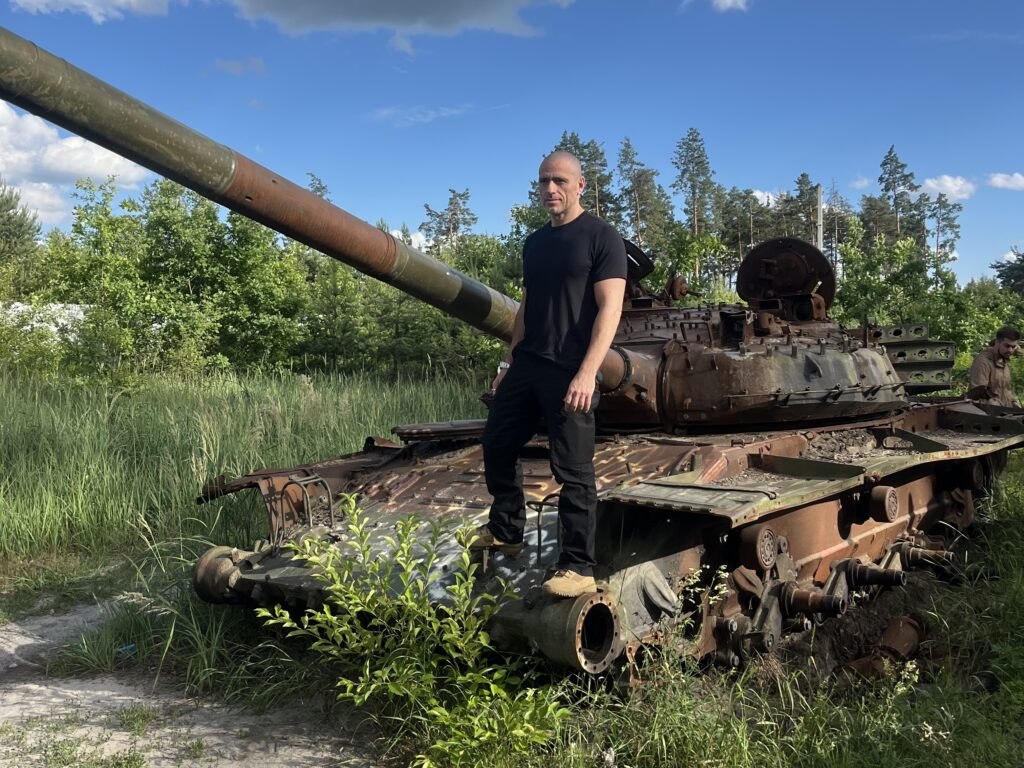
A Purposeful Visit Amid Geopolitical Complexity
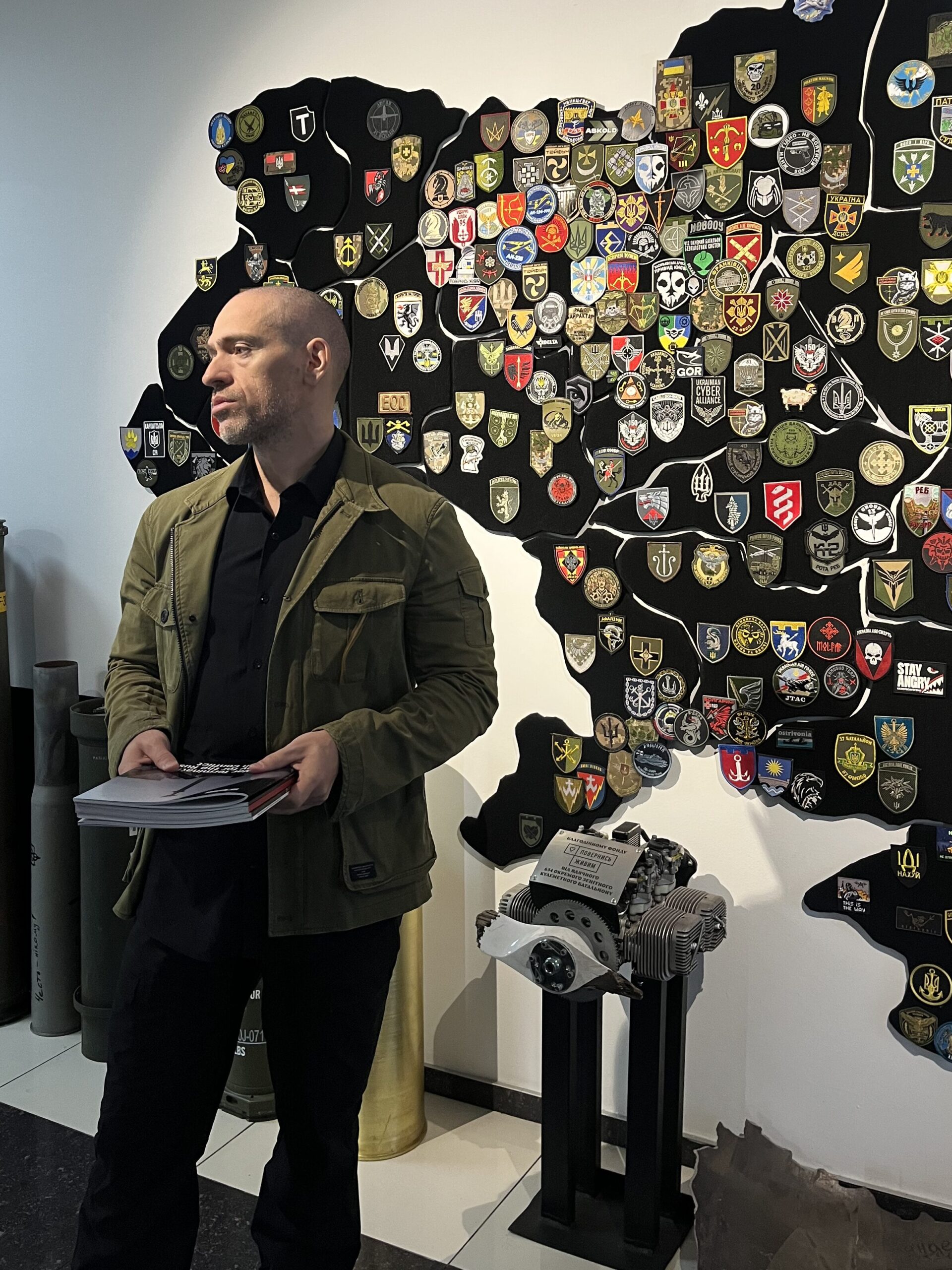
Although Brazil officially recognizes Ukraine’s territorial integrity and has supported key UN resolutions condemning Russia’s aggression, its leadership maintains a position of declared neutrality. This stance limits the depth of bilateral engagement and may send mixed signals at a time when the defense of international law is under unprecedented strain.
In this context, the arrival of Professor HOC—a prominent Brazilian political scientist, commentator, and public intellectual with over 1.9 million YouTube subscribers—marked a meaningful step in bringing Ukraine’s perspectives to Lusophone audiences, particularly in Brazil. As the creator of the country’s largest and most specialized YouTube channel on geopolitics, Cukier is known for delivering academically grounded analysis of major international events, blending insights from political science, history, geography, and philosophy. His voice carries significant influence in shaping public understanding of complex geopolitical issues across the Portuguese-speaking world.
As Mr. Cukier noted early in his visit: “I came here to understand the situation beyond theory—through real people, first-hand experiences, and a deeper engagement with the challenges Ukrainians face every day. It is a very different perspective than what can be absorbed through media coverage alone.”
From Observation to Insight: One Week in Ukraine
Mr. Cukier’s program, jointly designed by the Spain and Latin America Cooperation Program team—Oleksandr Slyvchuk (Coordinator), Alina Rohach (Project manager), and Bohdana Batsko (Project assistant)—offered a multi-layered experience across Kyiv and Kharkiv. The visit combined expert briefings, institutional meetings, and thematic discussions with military, diplomatic, media, and civil society representatives. On-site coordination and thematic continuity were ensured by Alina Rohach and Bohdana Batsko throughout the trip.
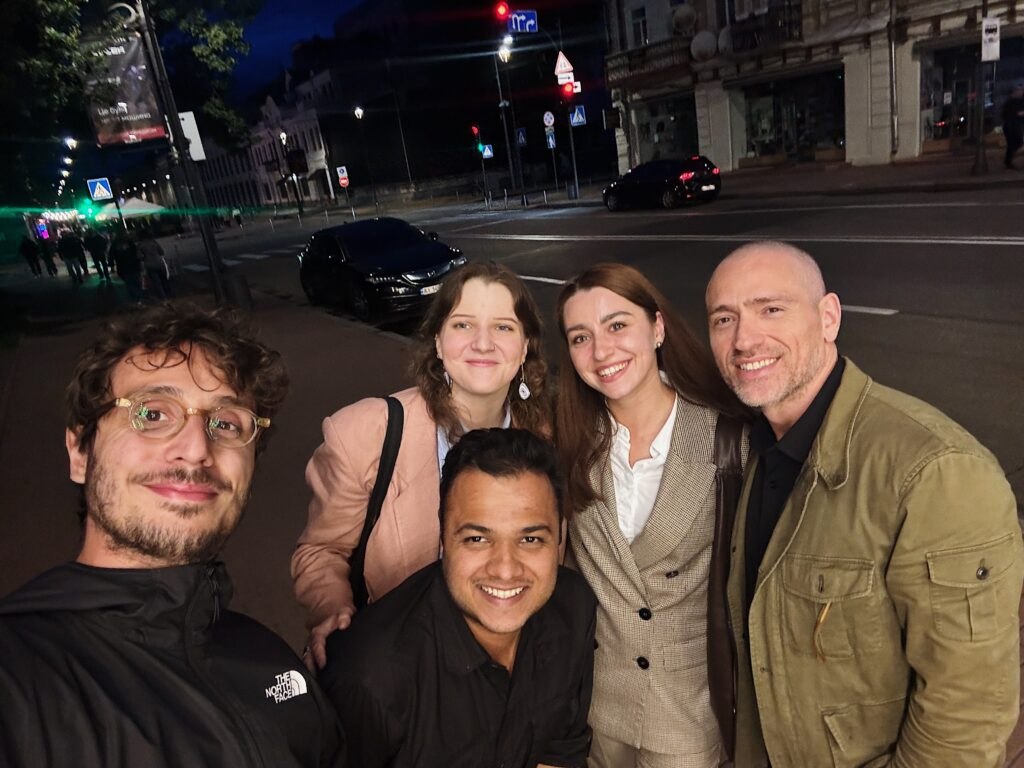
Kharkiv: Witnessing Resilience Up Close
The journey began in Kharkiv—Ukraine’s second-largest city and a symbol of both vulnerability and resilience in the face of Russia’s full-scale invasion. Here, Mr. Cukier met with representatives of the Center for Journalistic Solidarity, which supports Ukrainian reporters working in high-risk zones. He also engaged with military personnel, gaining insight into the operational and psychological challenges of modern warfare. These direct engagements offered Mr. Cukier critical insights into the societal dimensions of Ukraine’s defense—how ordinary citizens and institutions have transformed into agile nodes of national resistance.
Kyiv: Strategic Conversations and Institutional Engagement
In Kyiv, the focus shifted to expert discussions and institutional visits. A key meeting was held at the Come Back Alive Foundation, Ukraine’s largest and most professionalized civil-military support organization, which has operated since 2014 and was the first NGO in the country licensed to procure military-grade equipment.
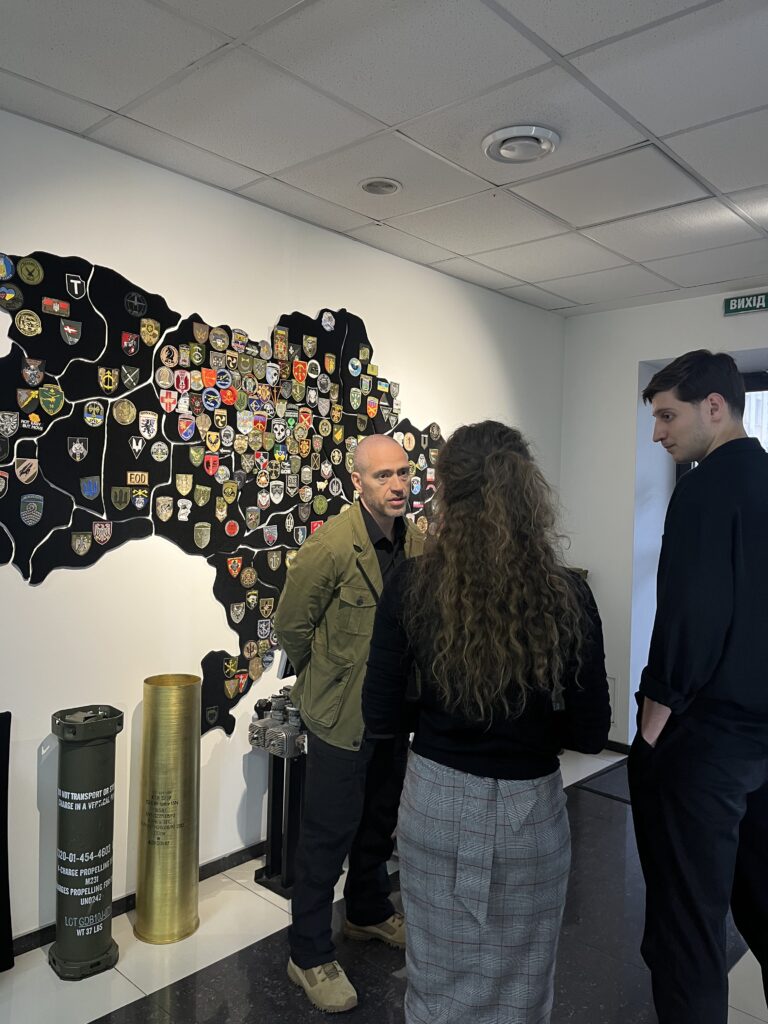
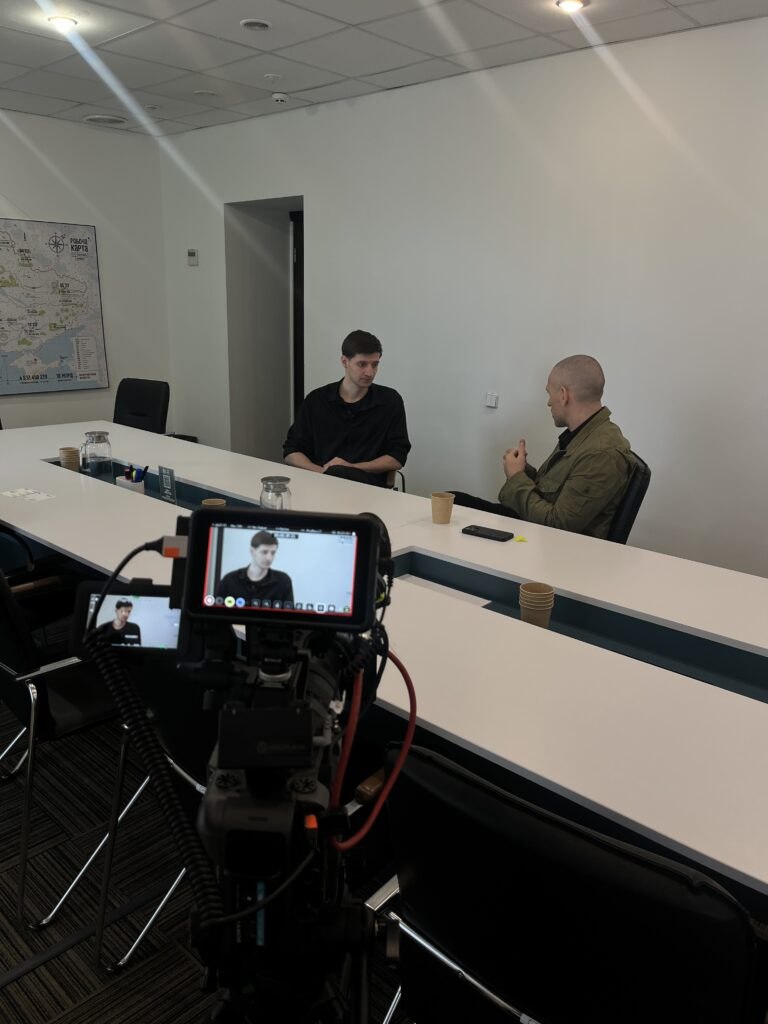
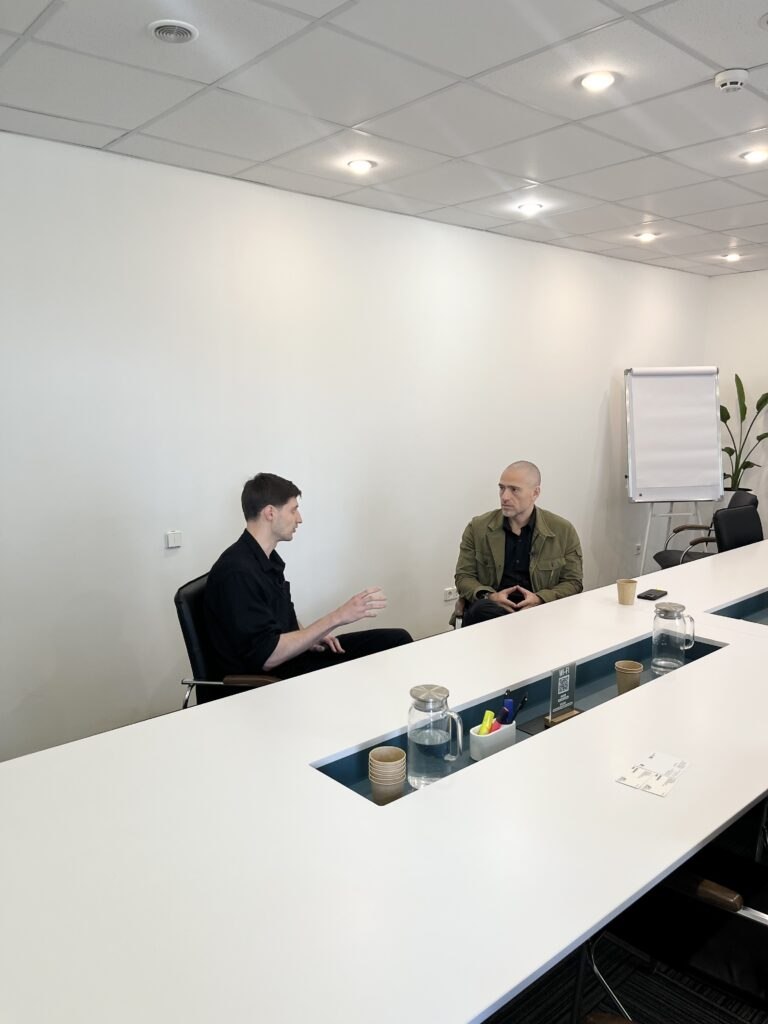
The meeting featured in-depth conversations with:
- Anton Muraveinyk, Head of Analytics, on battlefield dynamics and civil oversight in defense;
- Mariia Kucherenko, Senior Analyst, on Russian state strategy and security threats;
- Glib Voloskyi, Defense Analyst, on Ukraine’s military system and wartime adaptation;
- Kateryna Leschyshyn, Strategic Partnerships Manager, on cooperation with international donors and transparency practices.
At the conclusion of the meeting, Mr. Cukier observed: “You are building democracy through military forms—through transparency, trust within society, and public demand for accountability. It’s striking, because in many places, military structures are associated with opacity and hierarchy, but here they seem to be integrated into a broader civic ecosystem. That’s rare—and powerful.”
Mesa Redonda con el Sahaidachnyi Security Center
Later, a closed-door roundtable was organized in partnership with the Sahaidachnyi Security Center, a Kyiv-based think tank focused on national and international security. The discussion addressed Ukraine’s role in shaping the evolving global security architecture, its strategic communication challenges, and the critical need to amplify Ukrainian narratives in the Global South.
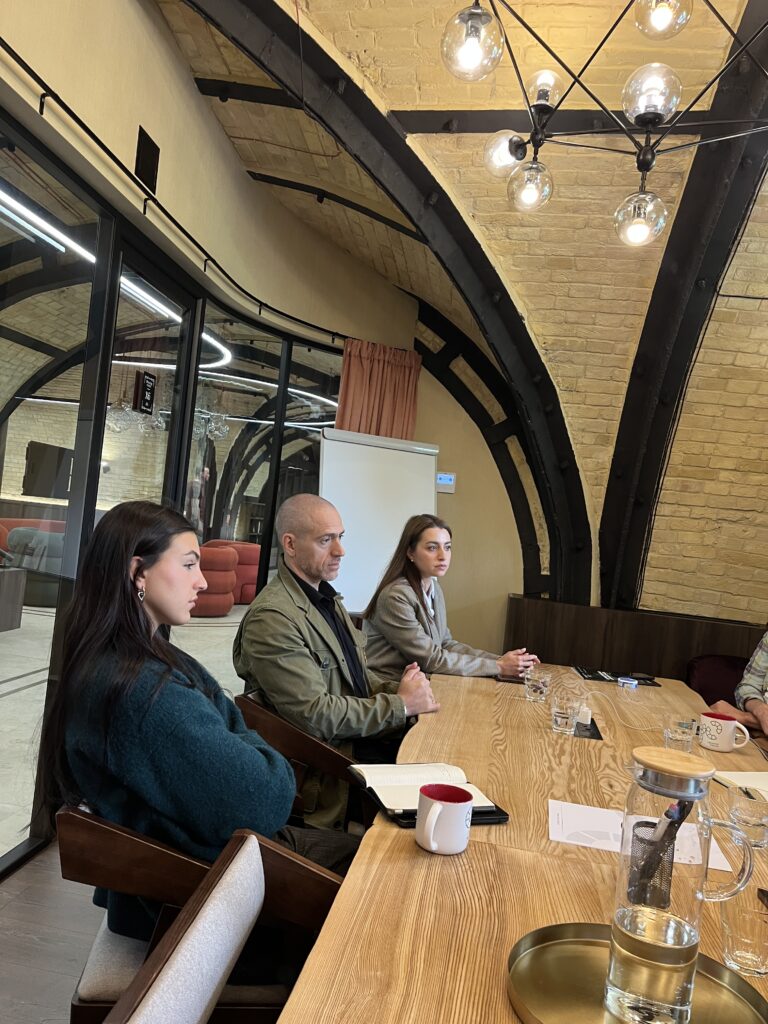
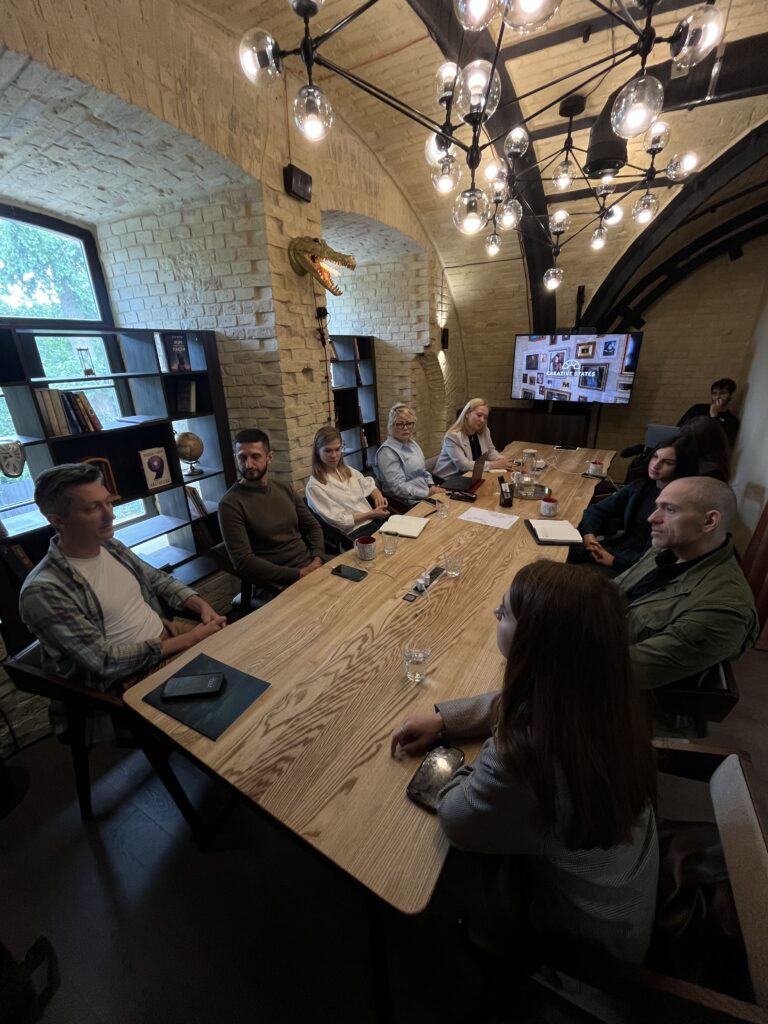
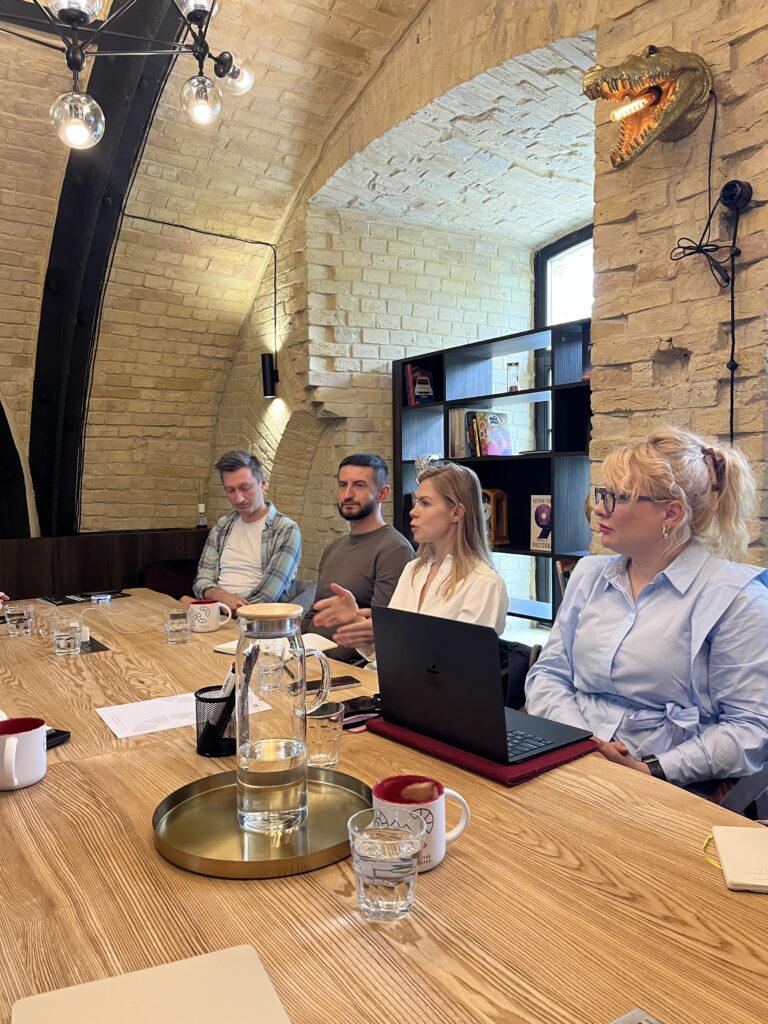
Participants included:
- Yuriy Bugai, expert in defense reform, procurement policy, and anti-corruption strategies;
- Alim Aliev, Ukrainian-Crimean Tatar expert in international advocacy;
- Olesiia Ogryzko, international security expert;
- Kateryna Barysheva, specialist in communication campaigns;
- Inga Vyshnevska, expert in strategic communications;
- Yulia Marushevska, expert in governance, reforms, and strategy development;
- Catarina Buchatskiy, military and defense technologies analyst.
The group explored how Ukraine’s experience with hybrid threats, resilience-building, and institutional innovation holds relevance beyond its borders, particularly for emerging democracies navigating authoritarian influence.
As noted by Sahaidachny Security Center representatives: “As the conflict that began in 2014 continues, maintaining Ukraine’s credible voice internationally remains crucial to raising global awareness about Russia’s aggression.”
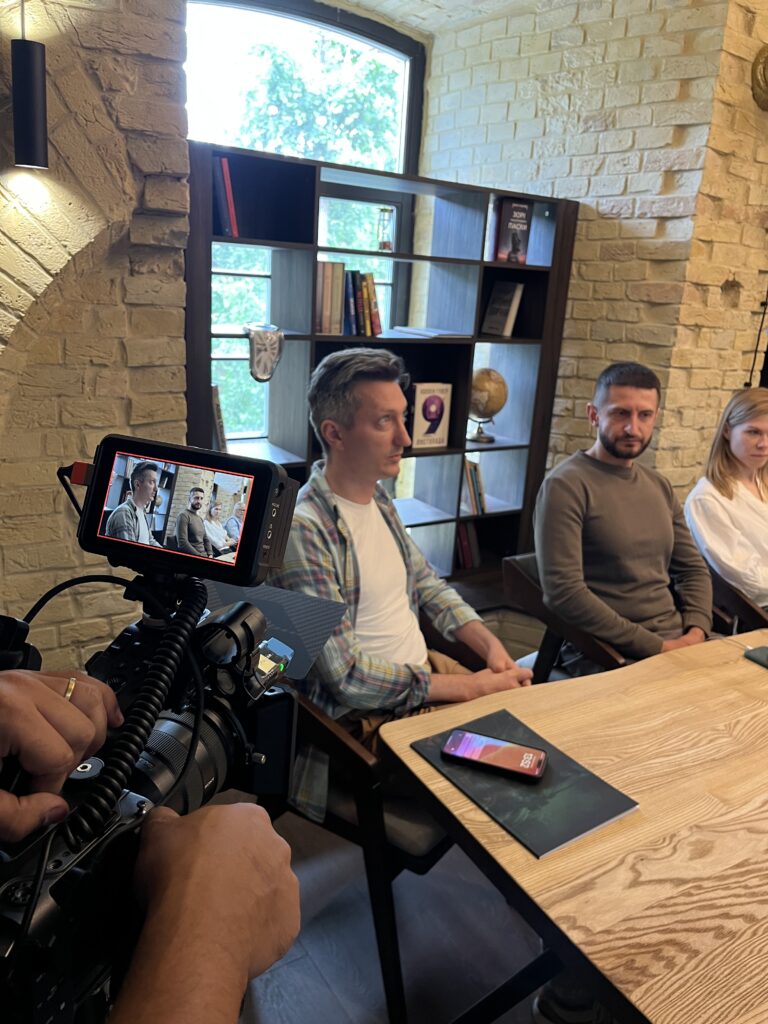
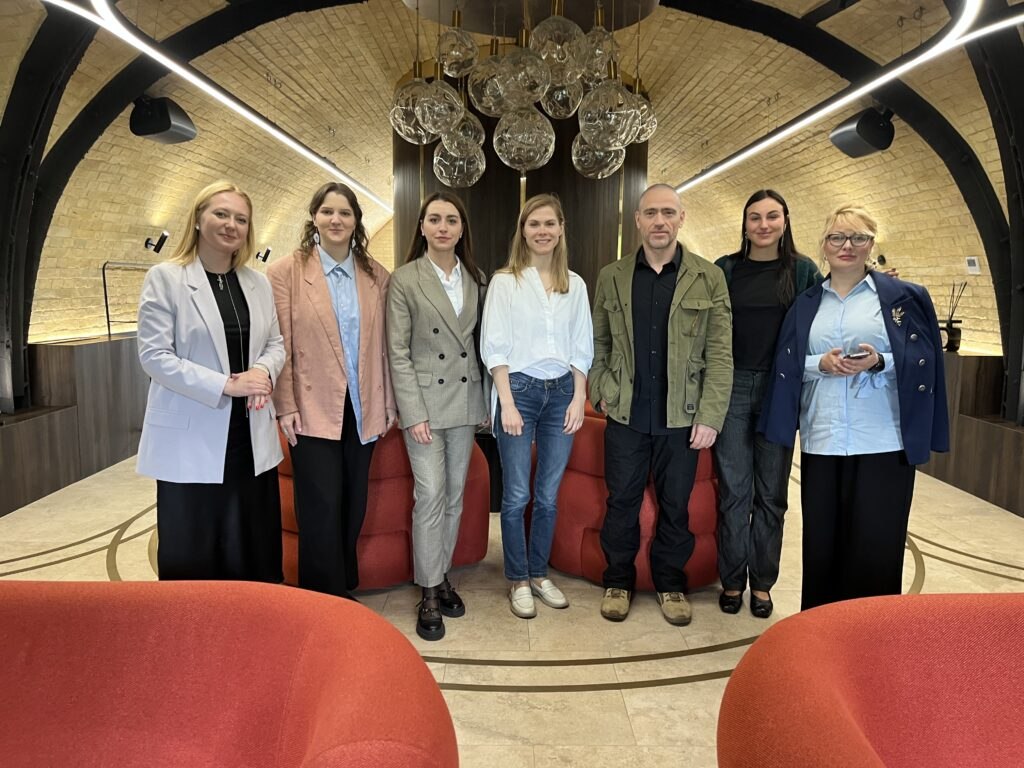
Diplomatic Insight: Meeting with the Ministry of Foreign Affairs
The visit also included a substantive conversation with Sergiy Kyslytsya, First Deputy Minister for Foreign Affairs of Ukraine. The discussion touched on a wide range of strategic issues, including the state of Ukraine–Brazil bilateral relations, the risks of strategic ambiguity in the context of international law, and the broader implications of Russia’s aggression—not only for European security, but for the credibility of the UN Charter and the rules-based global order.
The meeting offered Mr. Cukier a direct insight into Ukraine’s official diplomatic position on the war and the international response, conveyed by one of the country’s most experienced multilateral diplomats.
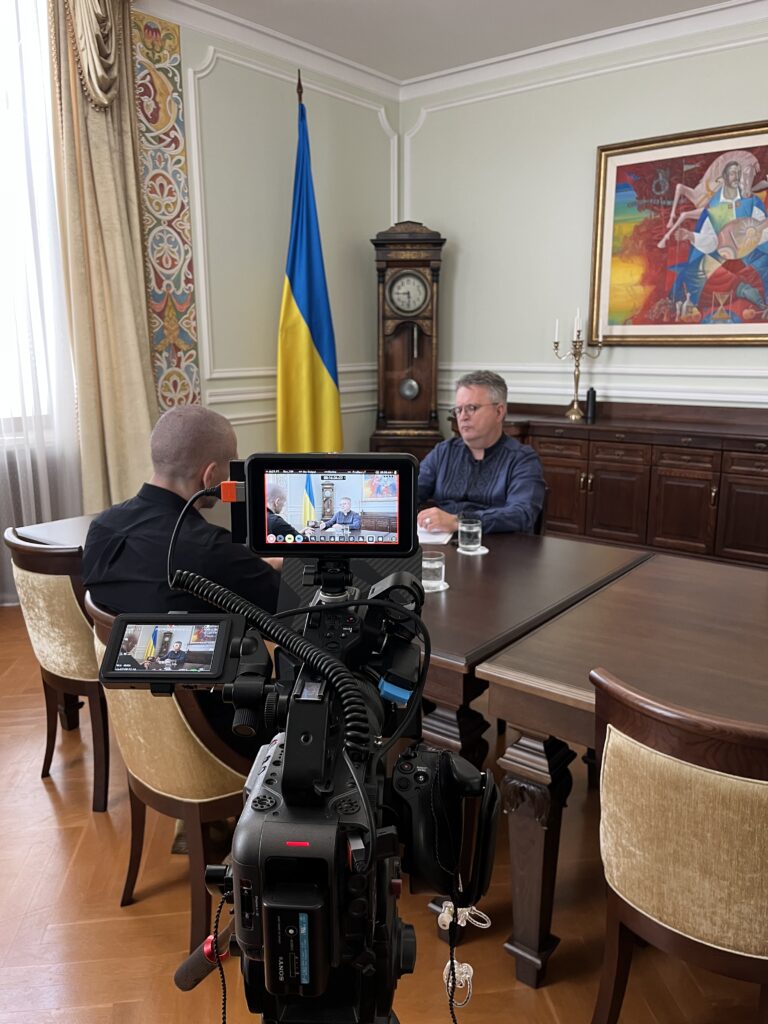
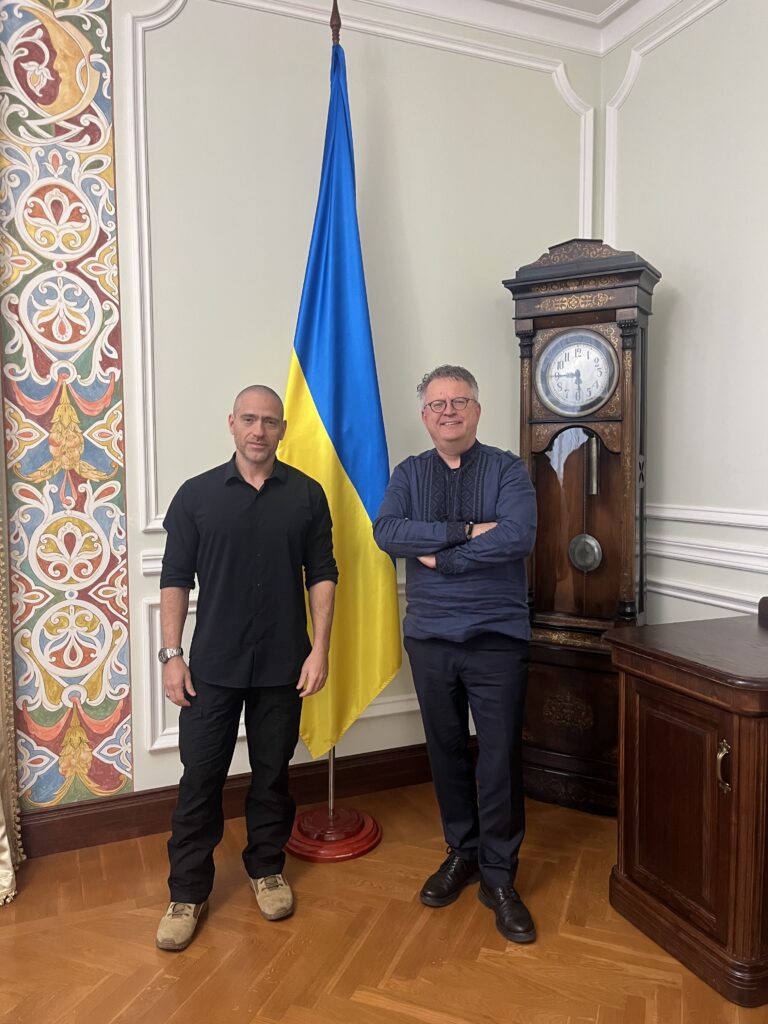
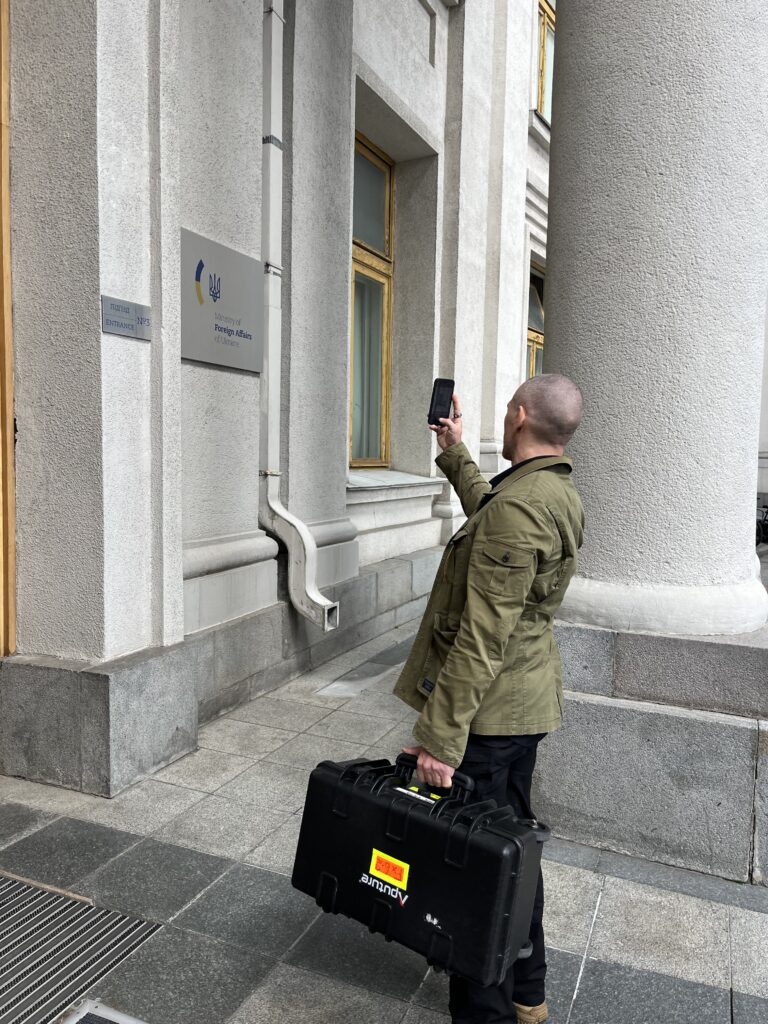
Empowering Voices: Civil Society and Media Engagement
In addition to institutional meetings, the visit included informal exchanges with Ukrainian civil society and media professionals focused on Latin America, coordinated by Ukraine Resilient—a civil society organization founded in 2022 to elevate Ukraine’s global impact on lasting peace and democracy. These discussions focused on strengthening cooperation in Portuguese-language content creation, countering Russian disinformation in the Lusophone information space, and enhancing Ukraine’s narrative visibility across Brazil and the broader Latin American region.
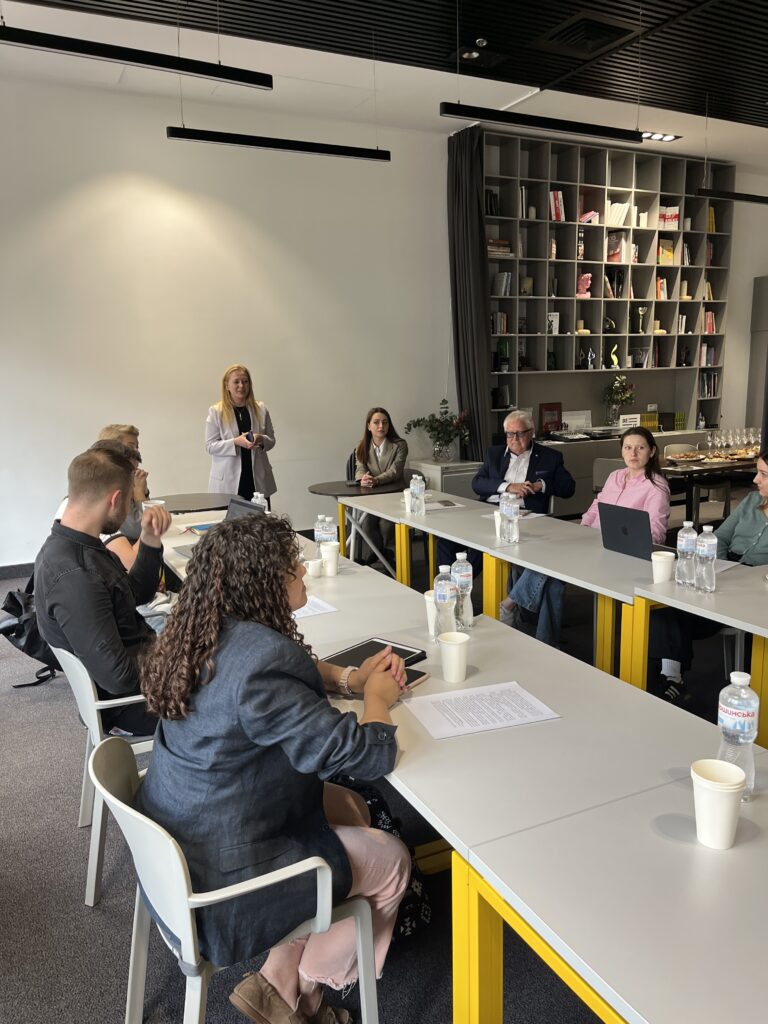
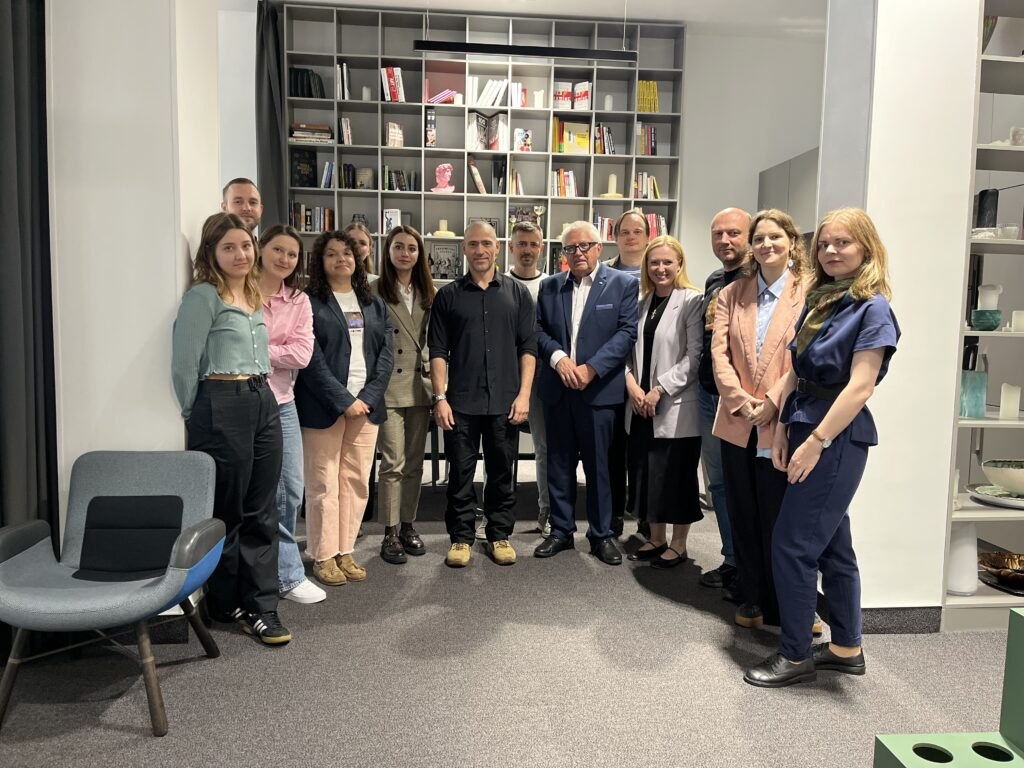
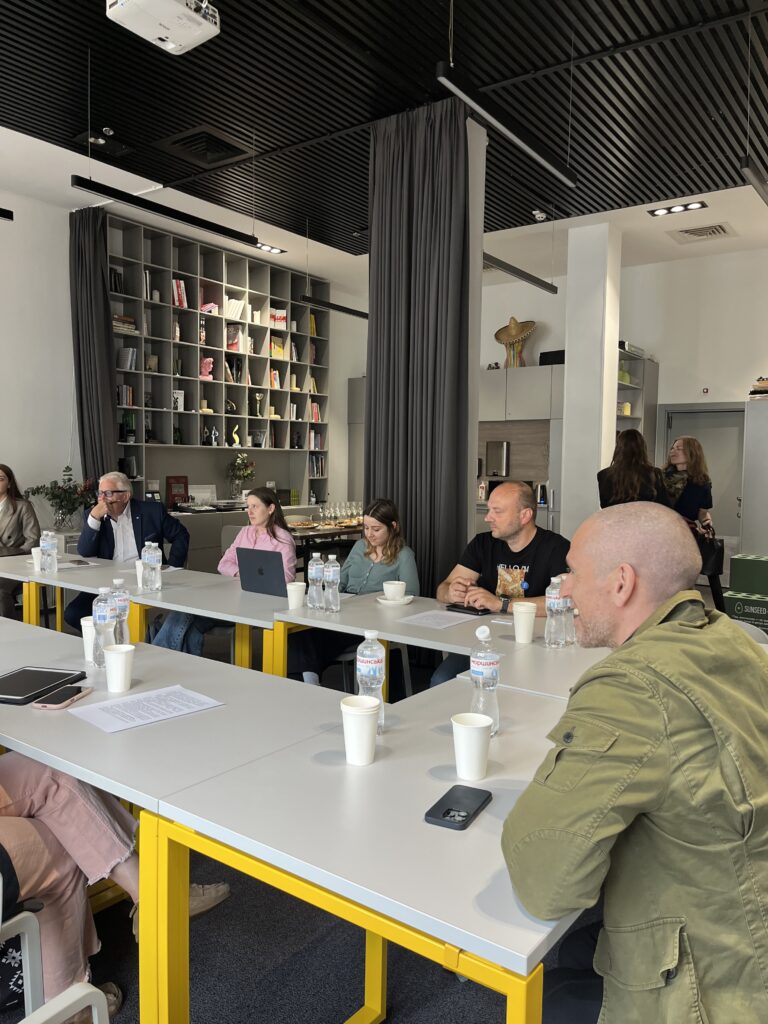
Building Bridges in the Information Space
Upon returning to Brazil, Mr. Cukier shared his experience on Flow Podcast—one of the country’s largest podcast platforms with over 5.8 million subscribers—where he spoke in depth about the insights he gained in Ukraine, the strength and coherence of Ukrainian society under pressure, and the importance of supporting a country that is not only confronting military aggression and an information war, but is fundamentally fighting for its survival.
His media team has since initiated the development of Portuguese-language content for YouTube, Instagram, and podcast channels, covering key issues such as:
- Russia’s war of aggression and its roots;
- Ukraine’s defense and geopolitical role;
- The resilience and civic structure of Ukrainian society under attack;
- The broader implications of neutrality and disinformation in international politics.
“The world doesn’t fully understand how courageous and capable Ukrainians are,” Cukier said. “And I think it needs to. There’s a lot the world could learn—not just from Ukraine’s suffering, but from how it endures and adapts. That’s a lesson in leadership and in values.”
Strategic Takeaways
In a fragmented world, Ukraine’s ability to engage partners beyond its immediate geopolitical neighborhood is essential to sustaining international support and shaping the global discourse on Russia’s war of aggression. Latin America, and Brazil in particular, remains a relatively under-engaged vector in Ukrainian diplomacy, yet it holds immense potential. As a regional leader with influence in multilateral fora and a gateway to the broader Global South, Brazil plays a key role in shaping how the world perceives and responds to global conflicts. The visit of a respected Brazilian thought leader like Heni Ozi Cukier—a respected public intellectual with a wide digital and academic reach—offered a rare opportunity to bridge that gap. It allowed for the humanization of Ukraine’s struggle, the correction of distorted narratives, and the expansion of solidarity beyond traditional alliances.
This form of engagement is not episodic—it is strategic. In the context of global contestation over truth and values, facts must be paired with trusted voices capable of conveying them with nuance and authenticity. The visit, made possible through cooperation between Ukrainian civil society, think tanks, and diplomatic actors, demonstrates the power of targeted communication diplomacy. As Ukraine continues to defend not only its territorial integrity but the principles of democratic governance, amplifying its voice through informed, globally recognized messengers will remain an essential component of its long-term resilience and international positioning.
The visit was organized with the support of the International Renaissance Foundation.